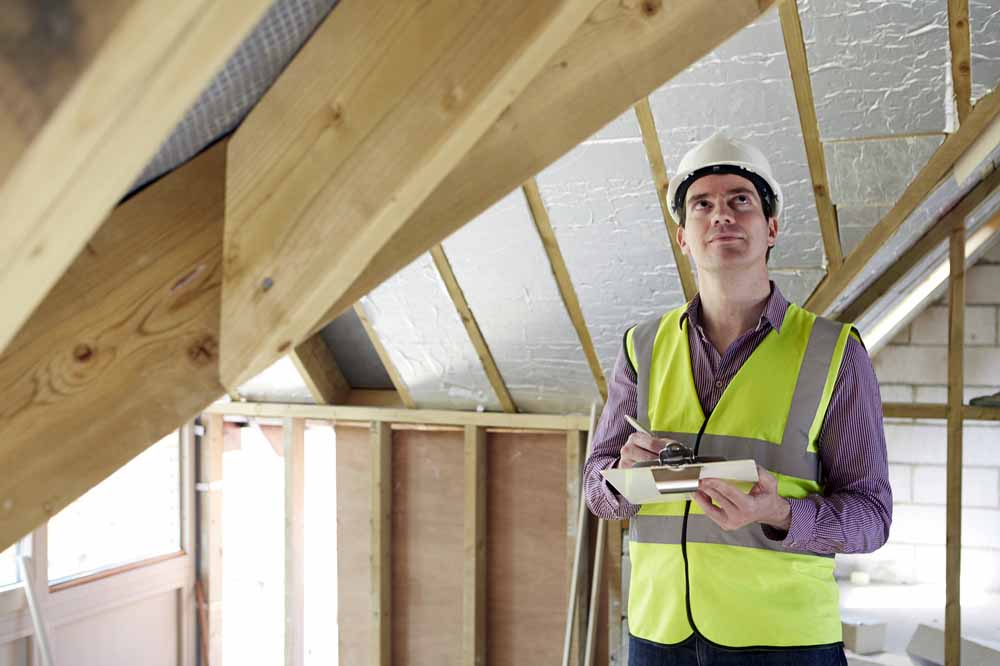Building a home is one of, if not the, biggest financial investment most people make in their lifetimes. With so much on the line, what protection is offered to both the builder and the homeowner? In this article, we’re covering Builders Warranty insurance services, specifically QBBC home warranty insurance. We’ll explain what it is, how it works and what your rights are when it comes to making insurance claims.

Table of Contents
What is QBCC home warranty cover?
A QBCC home warranty insurance is a premium a contractor or licensed builder pays the Queensland Building and Construction Commission to ensure residential building projects for fixed prices and cost-plus building contracts. The basic idea is for the insurance to cover homeowners in the event of any loss or if something goes wrong with their build.
The QBCC home warranty covers both fixed-price contracts and cost-plus contracts.
How is this different from home insurance?
It’s a common mistake for homeowners to assume home insurance and home warranty insurance are the same thing. However, home warranty insurance covers the build itself and the associated contract. If anything goes wrong or a contract is not fulfilled, a QBCC home warranty is designed to cover you.
A regular home insurance policy covers your home after settlement. This includes your personal belongings and damage that happens as a result of insured events.

How long does QBCC insurance last?
Like most warranties, there is a time limit on QBBC insurance and when you can make a claim. It’s essential to keep this in mind and make claims ASAP to ensure your claim is honoured.
Work is covered lasts for six years, six months from whichever is the earliest of the following dates:
- you pay a premium
- you commit to a building contract
- work on your building starts
There is the potential the cover lasts longer or can be extended if the building of your home takes longer than six months. Never just assume this. Make sure you know exactly how long your insurance coverage will last.
Just like any good insurance policy, there are a few finer details you need to be aware of when making claims. Let’s take a look at some of the key time limits for making claims that you need to know.
Non-Completion Claims
It’s hard to imagine something as frustrating as a builder not fulfilling your house or everything agreed to in the contract, but it does happen. A non-completion claim is designed for this very situation.
- If work has begun, the contract must be fulfilled within 2 years of work commencing.
- If work hasn’t begun, the contract must end within 2 years of the contract being entered into.
- In the event you want to lodge a non-completion claim, you need to make the lodgement within three
- months of the contract ending.

Defective Work Claims
Structural defects will be covered:
- 6 years and 6 months from paying the premium, entering into the contract or work commencing on your project (whichever of these events happened first).
- if you lodge a complaint within three months of noticing the defective work.
Non-structural defects, however, will be covered:
- If you become aware of the defect sometime within six months from the date of completion.
- lodge your claim within 7 months of the completion of your home.

Who pays QBCC insurance?
Your contractor will pay the money directly to the QBCC, however, this cost will be factored into your price. A builder must be clear on how much they’re charging for insurance costs and this should be outlined in any detailed quote given. They also must include the cost of insurance as part of their quote or run the risk of significant fines or even jail time.
When comparing quotes from several builders, be sure they’ve included insurance services as part of their quote. It will be a nasty surprise to find several thousand dollars added to your costs after you’ve agreed to work with them.

What is covered under home warranty insurance?
The home warranty insurance services cover residential building projects. The following is covered by the Queensland Home Warranty Insurance:
- Non-completion claims: This is where your builder fails to complete the agreed-upon work
- Structural Coverage for New Homes
- Protection Against Defects and Non-Completion

What type of work requires home warranty insurance?
It is a legal requirement that all construction or renovation work that has a contract price of $3,300 or more has to have home warranty insurance. Your builder or contractor should help you acquire this.

Why would a builder not complete a home-building project?
We won’t deny there are some dodgy people and companies out there, however, not all non-compliance cases come down to sinister motives. Here are some of the most common reasons projects aren’t completed:
- a contractor dies (not necessarily on the construction site).
- the contractor becomes ill or injured to the extent they can no longer work.
- the hired party disappears or never shows up to the job site.
- a building company becomes insolvent
- the building company or a contractor has their license suspended, due to non-compliance
The first two of these reasons are unfortunate situations that can’t be predicted, but problems like an unreliable builder or predicting whether a builder may be on the brink of bankruptcy can be. At Buildi, we take pride in being able to spot the signs of which builders are on the level and which ones look like they may be on shaky grounds. With so many builders going under lately, you can’t be too careful. Get in touch with our team to get some expert advice.

Benefits of Home & Builders Warranty Insurance
There are two key benefits of home and builder warranty insurance:
Protection for Homeowners
- Provides peace of Mind Against Faulty Workmanship or Non-Completion of contracted building work
- Can assist when licensed builders refuse to fix defects
- Financial Safeguards in Case of Contractor Insolvency
Assurance for Builders and Contractors
- Professional Credibility and Trustworthiness
- Compliance with Industry Standards and Regulations
- Is usually a legal requirement when building a home or working on a major renovation project
What is covered under home warranty insurance?
Coverage Limitations and Exclusions
With any warranty or insurance, it’s essential to understand what is covered. Just as important is knowing the limitations of your coverage and what exclusions are included.
Supplementary Insurance Options
Depending on where you are building, you may need to take out additional insurance to cover specific risks or situations. A common need for supplementary policies includes environmental factors such as building in a flood zone, bushfire zone or somewhere vulnerable to extreme weather events.

How to file a building compensation insurance claim?
Non-compliance claims
Gather documents
Crucial documents that will help prove your claim include:
- A copy of the building contract
- specifications as to what the issue is
- variation documents
- approvals and approved plans if the work required it
- any council approval or building approval
- evidence of payments made to the builder
- evidence of the contract is at an end (including termination notices, written evidence of the builder leaving the job or an agreed date that the contract would be met.)
Complete a form through the QBCC website
To prevent any delays in the processing of your claim, make sure you fill in everything correctly, provide all necessary paperwork and are as accurate as possible. Whatever extra time it takes to get it right the first time is nothing compared to what can happen when a mistake is made.
Lodge a defective work complaint
Before you lodge your complaint be sure to:
- Check your contract to ensure you have a valid complaint.
- Try to discuss your concerns with the contractor. Sometimes it’s an innocent mistake that can be easily sorted.
- Check that your situation is covered by the QBCC
- Try to be civil with both your contractor and others. Losing your temper is only going to complicate things.
If you’ve done all the above and still want to proceed, do the following steps.
Put your complaint in writing
When you raise concerns with your contractor, list all the issues and defects. The QBCC will not accept a claim if no attempt to provide written notice has been given. The contractor needs at least 14 days to address the concerns before you can continue.
Gather any supporting documentation
This includes contracts, correspondence and anything you think will help your cause.
Lodge your claim with QBCC

Home warranty insurance is essential for any new home build
A new home is a huge investment for anyone and it pays to have insurance to provide you with peace of mind. QBCC home is a necessity for any project with a contract value of over $3,300 and ensures your assets are protected in the event of anything going wrong.
Want to avoid hiring a builder who will later go out of business? Buildi has thorough criteria a builder needs to pass before we recommend them to any of our clients. Get in touch with us today for your free consultation.



0 Comments